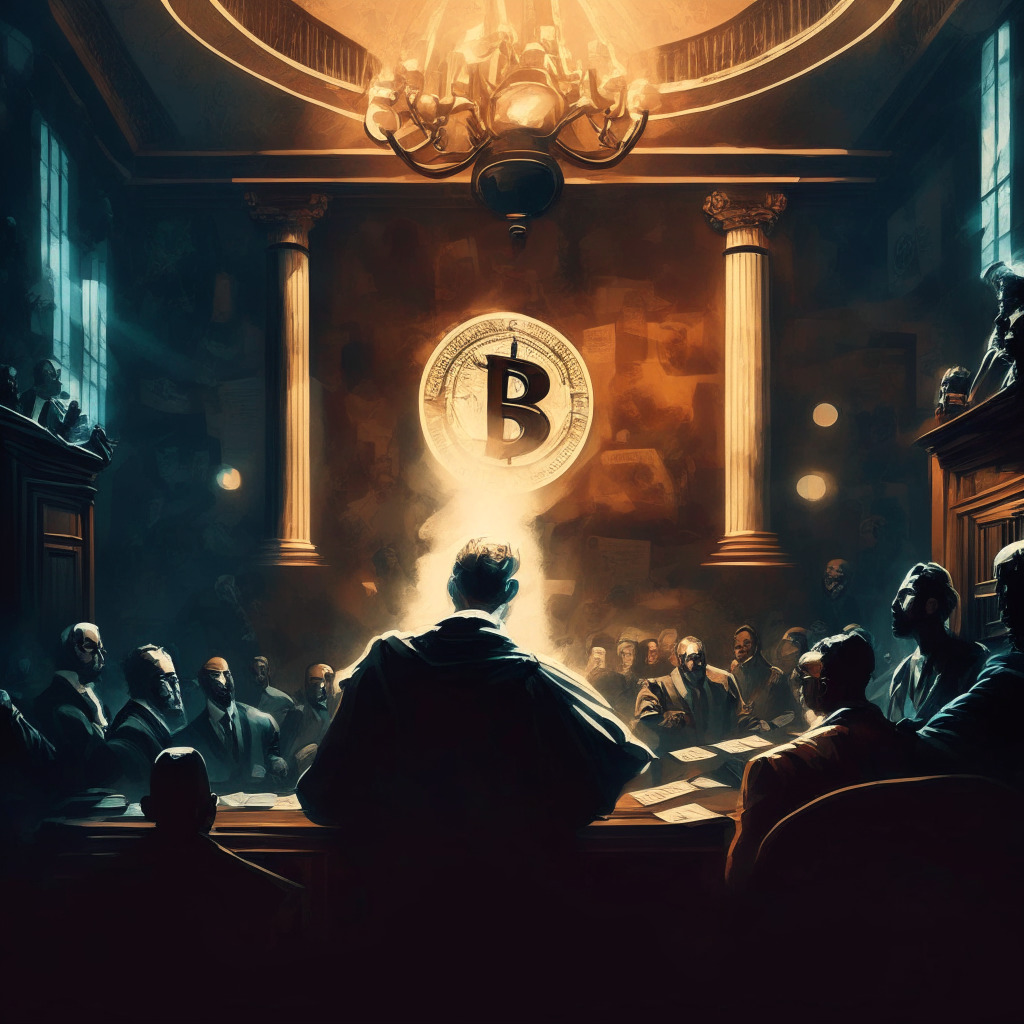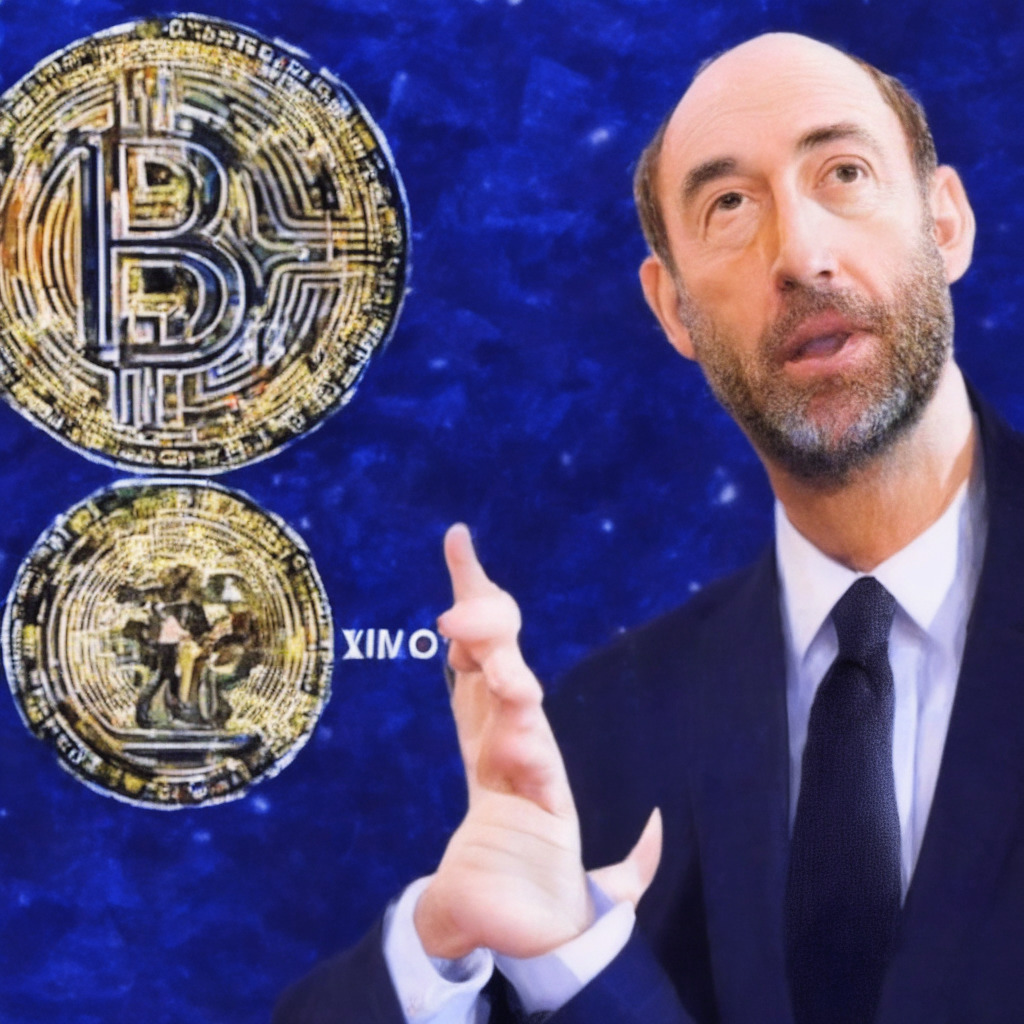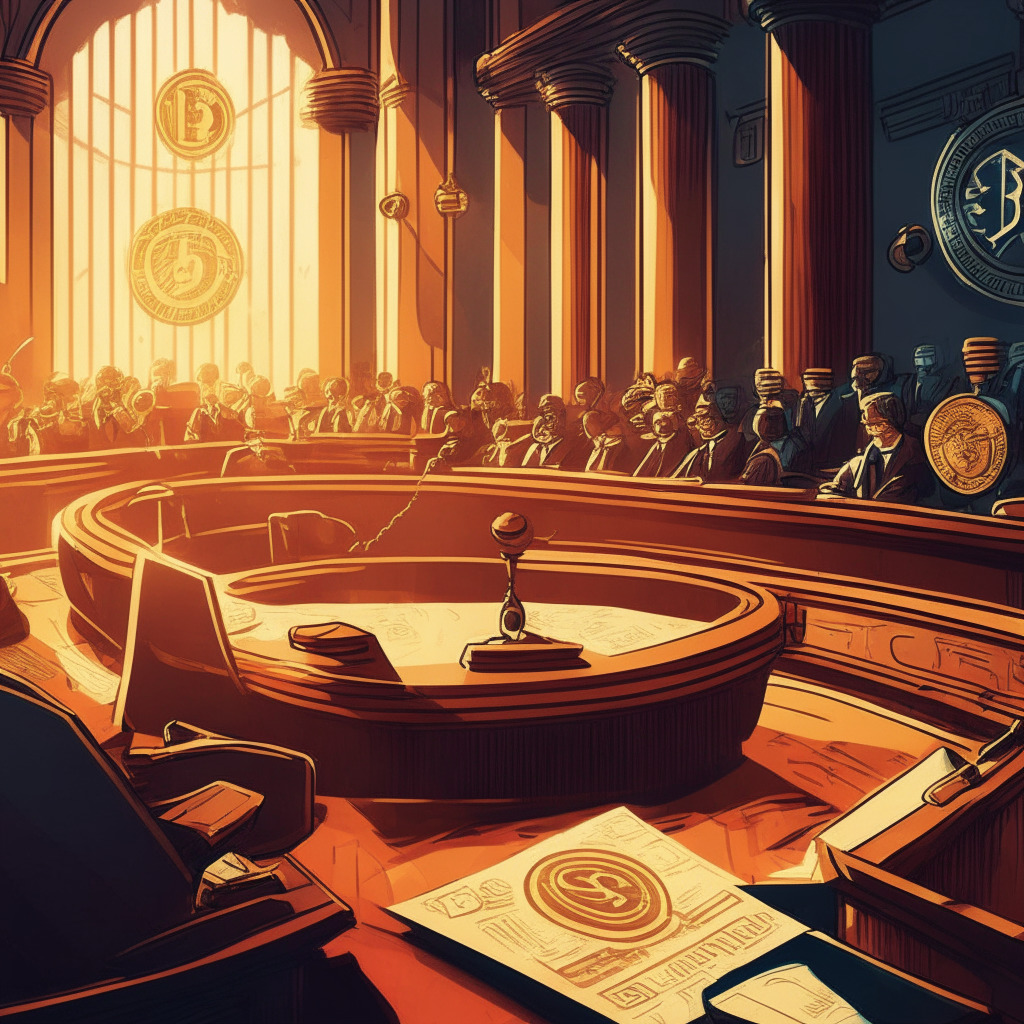Ripple CEO Brad Garlinghouse revealed that 80% of the company’s recruitments in 2021 will be in nations with clear regulatory landscapes like Singapore, Hong Kong, U.K., and Dubai, due to the ongoing legal frost with the U.S. SEC. This underscores how uncertain regulations can impact global industry growth.
Search Results for: Brad Garlinghouse
U.S. Regulatory Hurdles: Driving Crypto Startups Towards Friendlier Shores?
“Ripple’s CEO, Brad Garlinghouse, argues that the U.S. is the worst country for crypto start-ups due to its hesitance towards digital asset innovation. He highlights the UK, Singapore, UAE, and Switzerland as nations nurturing such innovation. Aggressive lawsuits by SEC and CFTC complicate the implementation of crypto regulations in the U.S., possibly inducing a mass exodus of blockchain startups to friendlier jurisdictions.”
Crypto Cold War: Navigating Regulations and Market Opportunities in the United States
Ripple’s CEO, Brad Garlinghouse, asserts the U.S. is one of the worst places for starting a crypto business due to regulatory issues. Despite legal victories, regulatory clarity remains elusive, leading Ripple to consider countries with more crypto-friendly policies. This invariably poses a dilemma for crypto businesses when regulations contradict market opportunities.
Ripple CEO Against SEC’s Crypto Regulation Approach: Searching for Balanced Legislation
“The discord between Ripple Labs and the SEC reflects global uncertainty on the legal status of cryptocurrencies. CEO Brad Garlinghouse criticizes the SEC’s regulatory approach, leading to investor losses and seemingly unnecessary trials, advocating for efficient legislation over ‘more regulation by enforcement.'”
Ripple Case Verdict Sparks Debate About Future of Digital Asset Regulation
The recent verdict in the Ripple case, acknowledging XRP as a security for institutional investors but not public sales, has sparked debate. Critics argue the decision creates a new asset class, shifting identities between securities and non-securities. Proponents, such as Ripple’s CEO Brad Garlinghouse, see potential for this ruling to shape crypto regulations. Overall, uncertainty pushes for Congress to provide clearer digital asset laws.
Hinman Speech Fallout: Ripple vs SEC and the Future of Crypto Regulation
The release of Hinman speech linked documents in the US SEC vs XRP lawsuit has raised questions about the SEC’s authority to regulate crypto. Ripple’s CEO Brad Garlinghouse criticized the SEC for its lack of transparency and consistency in regulating the digital asset industry.
Ripple vs. SEC: Uncovering Double Standards & Future Implications for Crypto Regulation
Ripple CEO Brad Garlinghouse criticizes the SEC’s handling of the Hinman emails and the ongoing Ripple lawsuit. The outcome of the case could have significant implications for the broader cryptocurrency landscape and future regulatory decisions, amid calls for a level playing field and uniform regulatory treatment.
Hinman Emails Stir Controversy: Ripple CEO Weighs In and Future Implications for Crypto
The Hinman Emails’ release has sparked debate on the SEC’s actions regarding Ripple and the crypto industry, with Ripple CEO Brad Garlinghouse calling for transparency, fairness, and integrity in regulation. The ongoing Ripple-SEC case could impact the future of cryptocurrencies, highlighting the need for clear guidelines and government accountability.
Hinman Documents: Will Ripple’s Legal Battle Shift With Unsealed SEC Messages?
Ripple CEO Brad Garlinghouse hinted at potential significance in the upcoming release of Hinman documents, which consist of internal SEC messages about the 2018 speech on cryptocurrencies’ transition from securities to commodity status. Supporters hope for insight into Ripple’s native XRP token’s legal standing.
Unveiling SEC’s True Motives: Ripple CEO Questions Lawsuits Against Binance and Coinbase
Ripple CEO Brad Garlinghouse expresses doubts over the SEC’s motives in suing Coinbase and Binance, suggesting their attacks on crypto businesses stem from the agency’s shortcomings in the FTX case. The crypto community unites against the SEC, anticipating the release of Hinman documents soon.
Ripple vs. SEC Lawsuit Outcome: Shaping US Crypto Regulation and Market Sentiment
The Ripple vs. SEC lawsuit’s outcome could shape the US regulatory landscape for cryptocurrencies. Traders exercise caution as XRP short positions rise. Ripple engages in ambitious projects, including real estate tokenization and developing Central Bank Digital Currencies.CEO Brad Garlinghouse is optimistic for a court decision soon.
Ripple CEO’s Confidence in Verdict: The Future of Crypto Regulations Rests on SEC Battle
In a recent interview, Ripple CEO Brad Garlinghouse expressed optimism for a verdict in the SEC lawsuit within weeks, following developments in the legal battle over the Hinman Docs – a case with significant implications for cryptocurrency regulations.
XRP Price Surge Potential: Ripple’s $1 Billion Acquisition Plan and Crypto-Friendly Nations
Ripple CEO Brad Garlinghouse plans to spend $1 billion on acquisitions for potential growth in Switzerland and the United Arab Emirates. If successful, more businesses may use XRP for cross-border payments, increasing the cryptocurrency’s price and establishing Ripple as a leading provider in the fintech sector.
SEC vs Ripple Case: Unsealing Hinman Docs & Impact on Crypto Regulation Future
In the ongoing SEC vs Ripple case, attention is drawn to the potential unsealing of the Hinman documents involving a 2018 speech about Ether not being classified as a security. The documents contain SEC’s internal communications about this issue, while Ripple CEO Brad Garlinghouse expresses concerns over ambiguous crypto regulations in the US.
Ripple, Coinbase & the SEC: US Regulatory Uncertainty Pushes Crypto Firms to Europe
Ripple CEO Brad Garlinghouse expresses concern over the growing number of crypto firms looking to invest and hire outside the U.S. due to unclear crypto regulations. Europe’s regulatory clarity attracts investments and companies, while the U.S. faces the risk of missing out on potential growth and innovation in the blockchain and crypto industries.
Crypto CEOs Eye Europe for Clearer Regulations: Boon or Bane for Innovation?
Many crypto CEOs, including Coinbase’s Brian Armstrong and Ripple’s Brad Garlinghouse, are considering European markets, especially France, for more lenient crypto regulations. With 72 registered crypto companies in France and clearer regulation compared to the US, European markets may attract more businesses.
Emerging Crypto Hubs: UAE and Dubai Attract Attention, Europe’s DeFi Struggles with Regulation
Major businesses are eyeing international crypto derivatives exchanges, with Coinbase CEO Brian Armstrong acknowledging the UAE’s potential as a hub for the company due to its forward-thinking approach. Ripple’s CEO, Brad Garlinghouse, also highlighted Dubai’s emerging role as a global financial hub for crypto innovation during the Fintech Summit. Crypto enthusiasts should remain vigilant of these emerging trends and regulatory changes to make informed decisions.
Ripple CEO’s $200M Lawsuit Struggle: A Lesson on US Crypto Regulation’s Uncertainty
Ripple CEO Brad Garlinghouse revealed that defending against the SEC lawsuit may cost around $200 million, while expressing concerns over the lack of clear cryptocurrency regulation in the U.S. He praised the progress made by the UAE and the EU, suggesting other countries follow their lead in establishing a comprehensive regulatory framework promoting innovation and protecting investors.
Navigating Uncertain Waters: Regulatory Influence in Crypto’s Course and Ripple’s Ongoing Legal Drama
“Highlighted is the critical role of regulation in the crypto industry’s evolution, and its capacity to shape future developments. Ripple’s ongoing legal struggle with the U.S. Securities and Exchange Commission exemplifies high-profile regulatory challenges. The delicate balance between fostering innovation and deterring fraudulent practices underpins the crypto sphere’s future.”
Ripple vs SEC: The Unresolved Story in the Crypto Legal World
In the ongoing legal battle between Ripple and the SEC, Judge Torres recently rejected the SEC’s planned appeal. While some view this as a significant win for Ripple, other experts warn against premature celebration. Refusal of the appeal doesn’t signal outright defeat for the SEC, but only means they have to appeal everything at once post-trial. However, a challenging factual record could make a successful appeal more difficult.
Ripple’s Rise in Singapore vs. Coinbase’s Legal Quagmire: Paving the Path for Crypto Regulation
The Monetary Authority of Singapore has awarded Ripple a digital payment tokens license, enhancing its position in the digital asset market. Concurrently, the SEC and Coinbase are engaged in a contentious lawsuit, calling attention to potential hurdles and the urgent need for clear cryptocurrency regulation.
Ripple’s Abrupt Pullout from Fortress Trust Acquisition: Strategic U-Turn or Cautionary Tale?
“Ripple has withdrawn its offer to acquire Fortress Trust, citing a shift in its U.S growth strategy. This follows a substantial monetary loss at Fortress due to a security breach, leading Ripple to reassess and eventually retract its procurement offer, affecting other organizations associated with Fortress Trust.”
Ripple’s Expansion in the UK: Crypto Boom or Regulatory Burden?
Ripple, a US fintech and blockchain firm, is expanding its British presence amidst regulatory challenges in the US. This follows the UK’s strategic efforts to become a global hub for crypto and fintech firms, including legislation regulating cryptocurrencies and stablecoins. Critics, however, fear this may limit open innovation.
Ripple’s Strategic Acquisition of Fortress Trust: Innovation or Defensive Measure?
“Ripple’s strategic acquisition of Fortress Trust bolsters its position in the blockchain markets, adding to its portfolio of over 30 US regulatory licenses. The acquisition could serve dual purposes, expanding services and customer value while also fortifying against unpredictable US regulation.”
Navigating the Ripple Effect: SEC’s Token Tug-of-War and Its Broader Implications
Ripple Labs objects to the SEC’s appeal of a judge’s ruling on the XRP token’s nature. The SEC wants to reclassify XRP as a security when sold to the public. Their appeal is paused until a resolution, highlighting the potential implications for future cryptocurrency lawsuits. Arguments involve whether selling XRP equates to an investment contract and jurisdiction over sales to institutional investors. Ripple’s response promises to challenge classifications of these sales as securities transactions.
Ripple vs SEC Showdown: Debating XRP Token’s Status and Impact on Crypto Landscape
In Ripple’s ongoing legal tussle, their legal representatives dismissed an appeal by the US SEC on the status of its XRP token. This dismissal is based on a July court ruling stating the XRP token did not majorly qualify as a security for retail sales. The expected jury trial date for this lawsuit is set for 2024, suggesting potential long-term implications for Ripple and the broader crypto industry.
Bitcoin Velocity Dips: Stagnation or Whales Playing it Cool? Ripple SEs Legal Distractions
Bitcoin’s velocity, reflecting how swiftly BTC moves around the network, has hit a slowing point, indicating a stagnant Bitcoin supply at around $26,000. This could suggest that large Bitcoin holders maintain their holdings rather than selling, sparking a debate in the market. The slowdown also has implications for other cryptocurrencies, particularly Ripple Labs, currently under the scrutiny of the Security and Exchange Commission.
Legal Shifts in Ripple v. SEC: A Game of Musical Chairs and Patricia’s PTK Launch: Building Suspense or Building Concern in Crypto World?
“The ongoing SEC v. Ripple lawsuit takes a fascinating turn with the withdrawal of three SEC attorneys and the addition of new ones, potentially impacting case progression. Meanwhile, Nigerian crypto exchange Patricia launches its native token, Patricia token (PTK), amidst security breach speculations and customer fund access issues, sparking worries of a potential exit scam. These developments underscore existing uncertainties in crypto regulation.”
Regulatory Ripples: The SEC’s Case against Ripple and the Future of Stablecoins in Canada
“Judge Torres’s ruling in the ongoing Ripple case might bring regulatory clarity to the crypto community. Meanwhile, Coinbase suspended certain stablecoins in Canada, raising questions on whether this regulatory rigour might affect the growth of blockchain’s future or secure the crypto future.”
Regulatory Tango: Analysis of the SEC Vs. Ripple Labs and Future Implications on Crypto Regulations
The ongoing case between the SEC and Ripple Labs involves a potential $1.3 billion unregistered securities offering. Recently, Judge Analisa Torres ruled that Ripple’s XRP sales didn’t qualify as securities offerings. However, the SEC plans to appeal this decision, indicating the complex and evolving landscape of blockchain regulation.
Pivotal Ripple Vs SEC Case: Decoding Effects on Blockchain Regulations & Future Impacts
“The SEC is seeking an appeal against a court ruling relating to Ripple Labs. This could influence other pending cases, causing potential discrepancies in rulings across jurisdictions. The inconsistencies of US crypto regulations on a global scale are highlighted; while SEC classifies most cryptocurrencies as securities, other regulators class them as property. This ambiguity is causing uncertainty among investors and companies, emphasizing the need for clearer, consistent regulations.”
XRP’s Bull Run: The Impact of SEC’s Decision and the Pending Threat of an Appeal
Following Ripple’s victory over the SEC, XRP has seen a 60% surge in value in just seven days. Despite the specter of a possible SEC appeal, the consensus remains positive for XRP’s continued growth. A potential rise to $1 or even $2 by the end of the year is deemed plausible.































